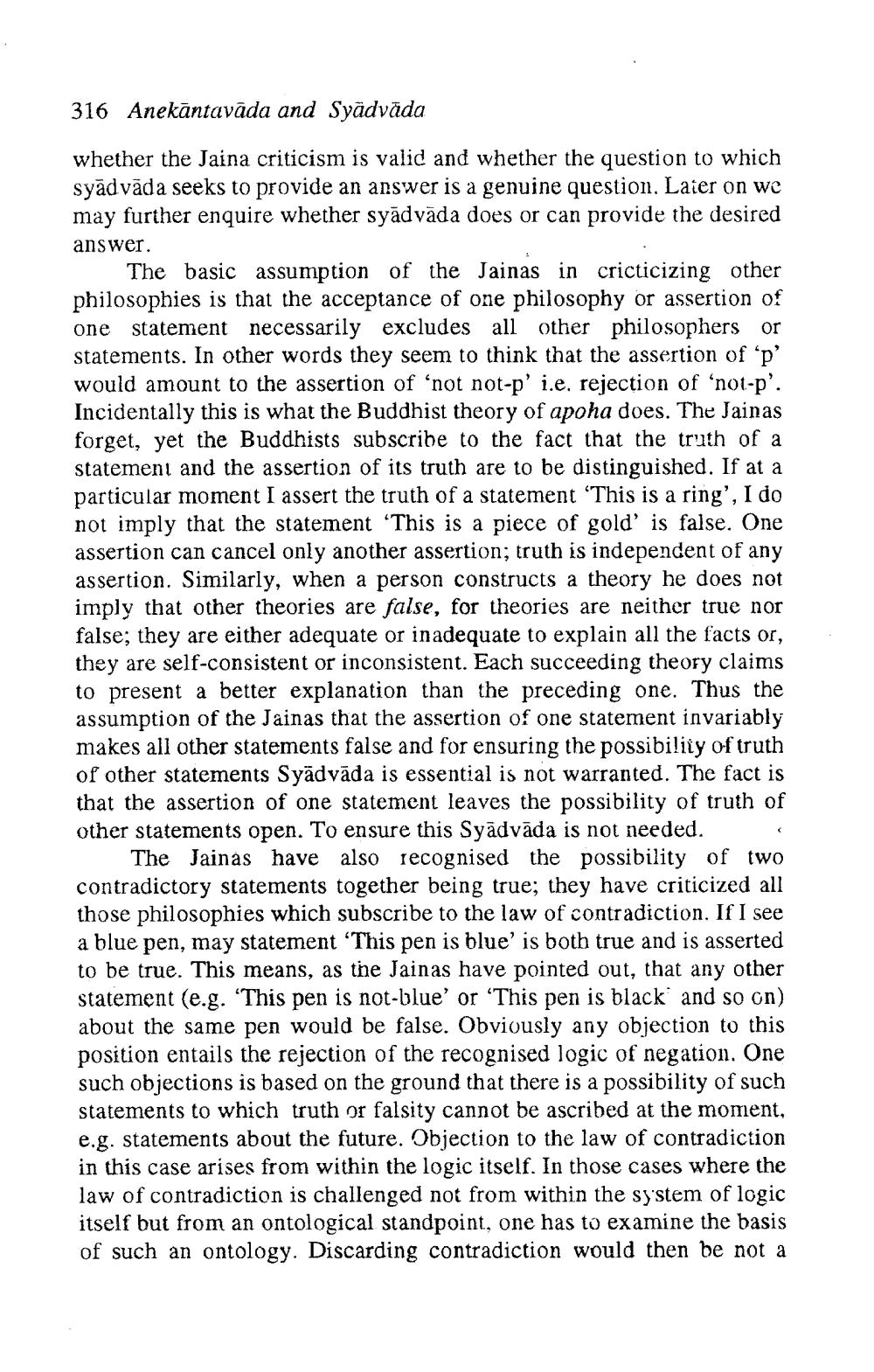________________
316 Anekāntavāda and Syâdvāda
whether the Jaina criticism is valid and whether the question to which syādvāda seeks to provide an answer is a genuine question. Laier on we may further enquire whether syādvāda does or can provide the desired answer.
The basic assumption of the Jainas in cricticizing other philosophies is that the acceptance of one philosophy or assertion of one statement necessarily excludes all other philosophers or statements. In other words they seem to think that the assertion of “p' would amount to the assertion of ‘not not-p' i.e. rejection of 'not-p'. Incidentally this is what the Buddhist theory of apoha does. The Jainas forget, yet the Buddhists subscribe to the fact that the truth of a statement and the assertion of its truth are to be distinguished. If at a particular moment I assert the truth of a statement "This is a ring', I do not imply that the statement ‘This is a piece of gold' is false. One assertion can cancel only another assertion; truth is independent of any assertion. Similarly, when a person constructs a theory he does not imply that other theories are false, for theories are neither true nor false; they are either adequate or inadequate to explain all the facts or, they are self-consistent or inconsistent. Each succeeding theory claims to present a better explanation than the preceding one. Thus the assumption of the Jainas that the assertion of one statement invariably makes all other statements false and for ensuring the possibility of truth of other statements Syädväda is essential is not warranted. The fact is that the assertion of one statement leaves the possibility of truth of other statements open. To ensure this Syadvāda is not needed.
The Jainas have also recognised the possibility of two contradictory statements together being true; they have criticized all those philosophies which subscribe to the law of contradiction. If I see a blue pen, may statement ‘This pen is blue' is both true and is asserted to be true. This means, as the Jainas have pointed out, that any other statement (e.g. 'This pen is not-blue' or 'This pen is black and so on) about the same pen would be false. Obviously any objection to this position entails the rejection of the recognised logic of negation. One such objections is based on the ground that there is a possibility of such statements to which truth or falsity cannot be ascribed at the moment, e.g. statements about the future. Objection to the law of contradiction in this case arises from within the logic itself. In those cases where the law of contradiction is challenged not from within the system of logic itself but from an ontological standpoint, one has to examine the basis of such an ontology. Discarding contradiction would then be not a




